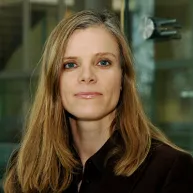Well-Being and Social Data Science
During 2019-2022, I returned from the European University Institute after a three-year leave of absence. My first goal was to set up a new study program on data science for social scientists and use data science techniques for subjective well-being research. My second goal was to design studies that could prove causal relationships. My third goal was to continue my international collaborations, and establish a new research group.
- Happiness of migrants, happiness of natives: Migration numbers are rising, and in aging populations, they are the only dynamic growth factor and are highly dependent on political decision making. Migration also causes social integration problems. To better understand and respond to integration challenges, we broke down and studied the dynamic process of migration and happiness over decades. We found different adaptation patterns for different domains and for different social environments. Timing during the migration process with respect to family unification also plays an important role. Migration often ignites political polarization and so we also studied the happiness of the local population in response to different in-migration scenarios. We used advanced designs and econometric techniques to identify the causal effect of migration on the subjective well-being of the native population.
- Causality: Empirical happiness research has mainly produced correlational results. With innovative experimental designs, longitudinal data, advanced econometric models and cross-validation techniques, we are trying to close the explanatory gap between correlation and causation in multiple studies.
- Elites: Contemporary societies show a growing gap between the rich and poor. Sociological research has long ignored the super wealthy, but given the high concentration of economic, often political, and military power, researchers and society at large are increasingly questioning this omission. We researched the world views of the super wealthy tech elite and found both material as well as immaterial shared patterns. We also studied the tech elite during the COVID-19 pandemic and derived policy recommendations. Since wealthy and powerful people are super selected and difficult to reach through standard social science methods and techniques, we used data from the internet and social data science tools.
Besides a solid publication output, highlights of the period 2019-2022 include:
- Hilke Brockmann received a funded research fellowship at the Robert Schuman Centre for Advanced Studies at European University Institute in Florence, Italy.
- She was appointed Editor of a new Encyclopedia of Happiness, Quality of Life and Subjective well-being.
- Brockmann developed and achieved accreditation for a new study programme called Data Science for Society and Business.
- She maintained international co-operations with European University Institute, City University of New York in the United States, Shanghai University in China, University of Santiago de Chile, National Autonomous University of Mexico, and University of Cape Town in South Africa.
- She was also involved in outreach to media, industry and political institutions, and was the author of op-eds in a daily newspaper.
Brockmann was a fellow of the European University Institute. Since 2022, she has supervised a DAAD funded PhD project (GloWell) on happiness and sustainability, and has worked on two projects on learning during COVID as well as Ageing and the Internet, funded by the Konfucius Institute.
- Hilke Brockmann (2021) Why are migrants so happy? Subjective well-being of first-generation migrants in Germany. Frontiers in Human Dynamics 3: 688487.
- John Torpey, Hilke Brockmann, Braelynn Hendricks (2021) Excess Profits, TaxpayerSubsidized Philanthropy, and the Coronavirus Crisis: Charitable Giving of the Tech Elite in Response to the Pandemic Sociologica 15 (2), 95-116
- Hilke Brockmann, Wiebke Drews, John Torpey (2021) A Class for Itself? On the Worldviews of the New Tech Elite. PlosONE
- Hilke Brockmann (2021) Depression in Middle Age. Encyclopedia of Quality of Life and WellBeing Research. Springer Nature
- Katharina Kurz, Sonja Drobnic, Hilke Brockmann (2019): Trajectories of Insecurity. Young Adult’s Employment Entry, Health, and Well-being. Journal of Vocational Behavior, 115/103308

